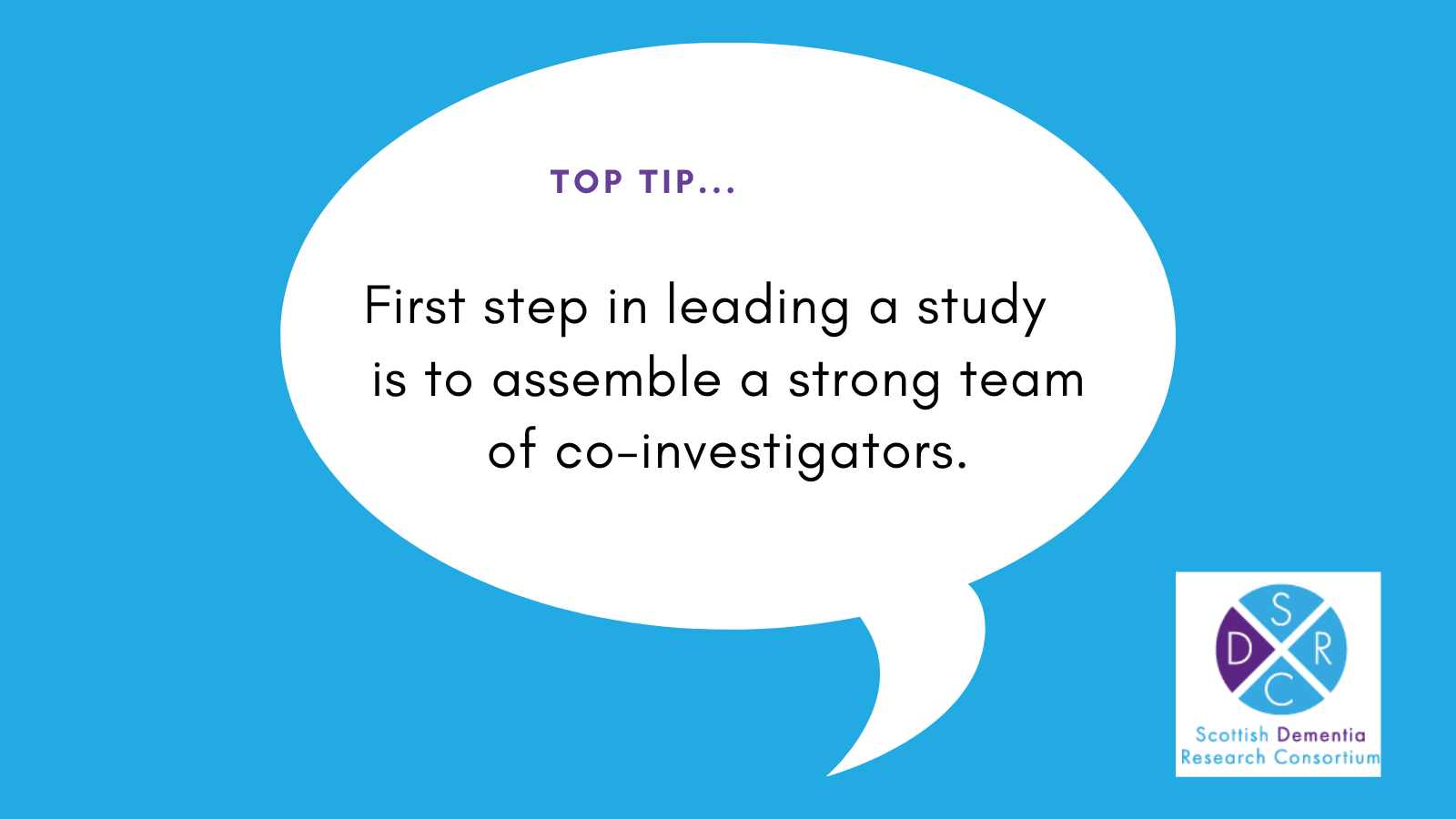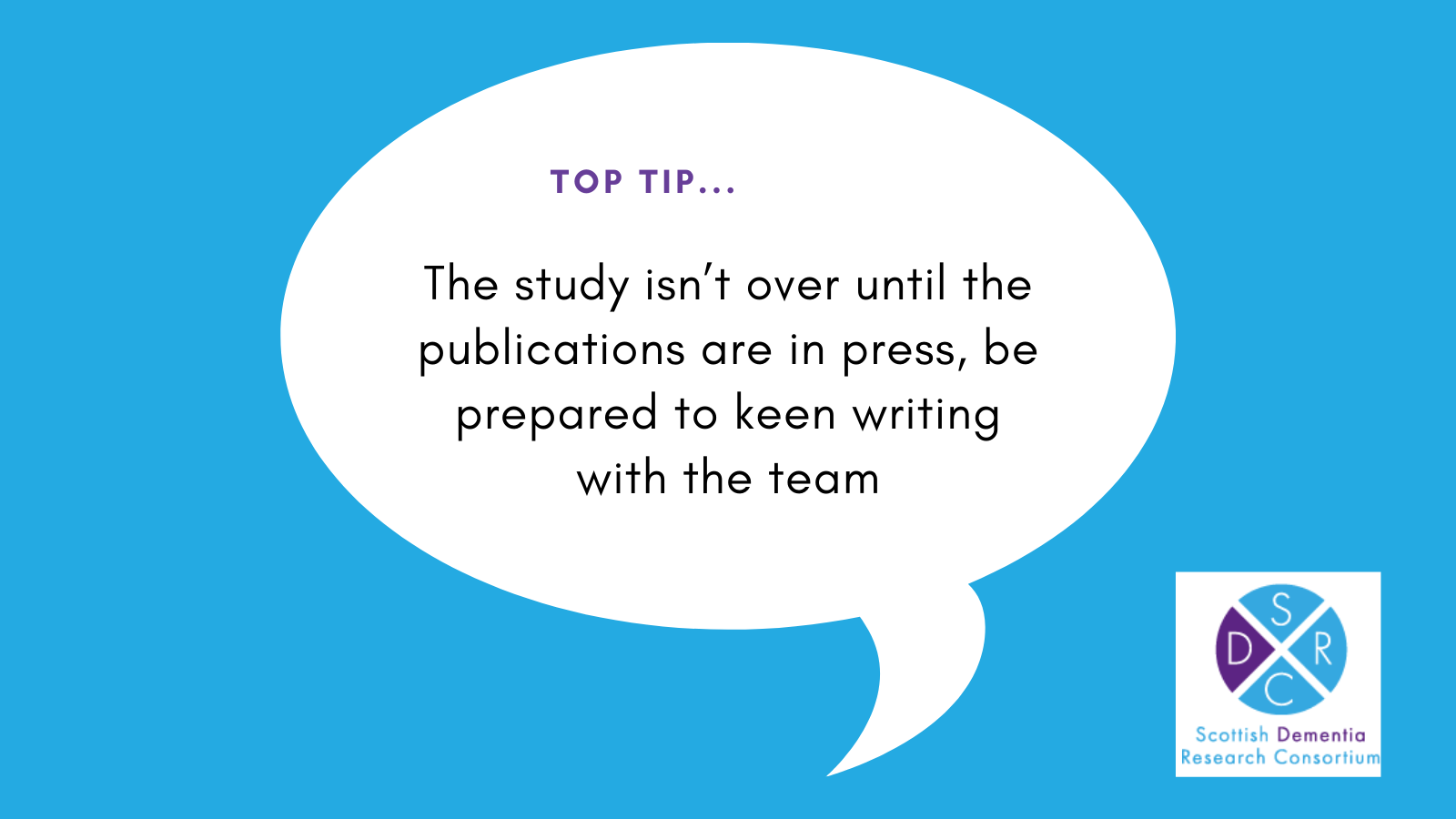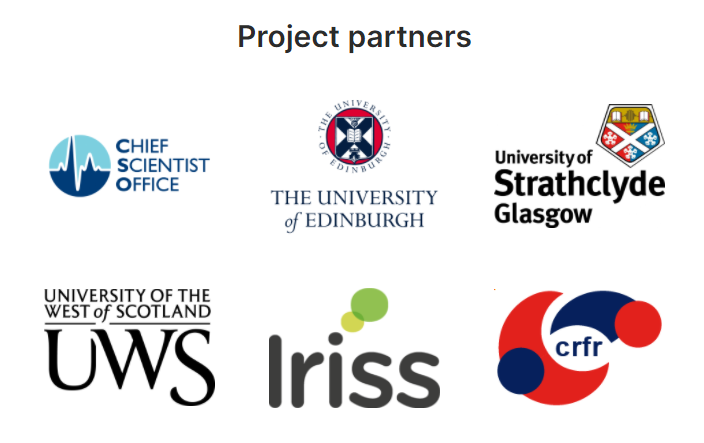Today’s SDRC blog provides insights from three investigators and offers tips on doing rapid COVID research. George Palattiyil, Sarah Swift and Debbie Tolson have shared their experiences of working together remotely and the process of the research, from the application process through to submission of their Creative Covid Care study. Read the full blog below and start a conversation on our Twitter, and read our previous SDRC blogs here.
As researchers, we spend years learning what makes good and impactful science. In addition to scientific integrity, we embrace rigour, address ethical considerations, comply with research governance mandates, create impact pathways and negotiate the many ups –and-downs of research in practice.
We are invigorated by funding successes, challenged and frustrated by rejection and learn that the doing of high quality research, getting research into practice, publishing findings and influencing policy all takes time. Then along comes a pandemic and in this situation it is clear that slow science needs to be superseded with fast science.
Rapid COVID studies require rapid funding mechanisms and processes that meet the urgency of the situation. For three SDRC members, George, Debbie and Sarah, undertaking a Chief Scientist Office Rapid COVID Study was a leap of faith with a team who had not previously researched together. In this reflective blog we explore with George what motivated and enabled him, as a new Principal Investigator, to assemble an interdisciplinary, multi-organisational team to respond to the funding call. From Debbie, we examine why a professor said ‘yes’ to joining as a Co-I. Finally, we ask Sarah, one of the project post-doctoral research fellows, what it was like to be part of a six month rapid COVID project team. Before moving to these reflective accounts, we should really tell you more about the project.
What was the project about?
In a nutshell, we investigated the impact of care home lock down on the families of older residents. We were keen to understand the psychological impact on family members and what helped them to stay connected with their relative. To do this we undertook in depth interviews with 36 family members and 444 completed an online survey. It was also important for us to explore wider stakeholder perspectives; this was achieved through 19 semi-structured interviews with policy and sector leaders in addition to charities representing older people and people with dementia. To appreciate what the staff had done in practice to keep families connected we hosted five online café style drop in interview sessions. The research activities, plus a rapid literature review were completed over 6 months.
Principal Investigator Perspective
When the CSO Rapid Covid Funding Call came into my inbox I knew I wanted to do something to help. The short turn round time to express interest was daunting, but I felt compelled to try. The idea to focus on the care home lockdown experience of family carers was borne in part by my shock at media announcements about the rapidity of what had happened, and my professional understanding of the centrality of family caring in the lives of older care home residents. The ‘what’ or determining the ‘research problem’ was perhaps the easiest decision, but I knew I had to assemble a strong interdisciplinary team. Now I really understand the importance of networking and keeping in touch with colleagues, but I also had to learn to trust in the recommendations of other researchers who would add value to the team. Call it the COVID factor but I was amazed at how quickly the team, from different Universities and organisations was on board. Team building niceties pushed to the side, we crafted and submitted an application in a matter of days—possibilities of online working environment. In no time at all, the award contract was signed and the project started.
As a new PI of a collaborative, cross-institutional partnership the learning curve was steep, but perhaps the most important lesson was to trust in the expertise of the team, to agree respective roles, communicate more than ever and hold my nerve.

Navigating the University ethics procedures and governance, liaising with research contracting and management team, communicating with the funder, and supporting and working with the research team across institutions were all rewarding, albeit challenging at times given the pace at which we were operating. Self-imposed deadlines and the goodwill of everyone involved really got us through – with the main research report now with the funder, we are feverishly drafting a series of manuscripts for publication.
Co-Investigator Perspective
Like George, I had seen the CSO Rapid Funding Call but was still thinking about it when I received his email inviting me to join the team. I had a quick look at Researchgate, PURE profiles and website information to find out about the team members I did not know, satisfied by what I saw I agreed.

Proposal crafting was fascinating, there was no shortage of ideas and a raft of method possibilities. The biggest challenge was finding a design and methods possible to complete in 6 months. Rather than the normal lengthy proposal and complex application forms, we were preparing a two-page proposal. There is nothing like brevity to force one to crystallise ideas, and come off the fence quickly.
Two of my key study responsibilities were the recruitment of care homes and line management of one of the project post-doc research fellows. What surprised me was the willingness of the care home managers to connect with the study, and their keenness to assist us to recruit family members despite extreme pressures and unimaginable challenges. Emails were important but there is no doubt that taking time to phone to ask care home managers for advice on the best way to do things was useful. This step reassured and motivated them to engage with the research. As a professor, I would normally delegate such calls to project staff, but in this study, given the exceptional circumstances, I felt compelled to do as much of the calling as I could. I learned much about the realities of what was happening on the ground, understanding that was critical to study completion. Although these conversations provided a window on what was happening in care homes, I knew I had to make a strict distinction between data and these off the record conversations. This brought into sharp focus the emotional labour of research and the importance of debriefing, particularly for our team members early in their research careers.
Naming the research fellow on the funding application helped us to move quickly through the employment processes. In terms of the line management approach, I tried to give Sarah space to progress the things she was confident about and support to find her way quickly through new challenges including interviewing people traumatised by their experience.
Post-Doctoral Research Fellow Perspective
I was honoured when George and Debbie approached me to work on this important and timely study. Being so used to the usual slower pace of research projects, the rapid nature of this project was quite a steep learning curve, but I greatly enjoyed the challenge of completing the study within the six-month timeframe.

I was entrusted with a wide variety of responsibilities, and felt that my skills and ideas were valued by senior members of the research team. Although the pace of the project was fast moving, time was made for emotional support and to rehearse difficult interviews and best practice for research with the recently bereaved. Being involved in such an innovative study was a unique learning opportunity for me as an early career researcher, and a huge boost to my confidence in my academic abilities, having recently returned from maternity leave. I also benefitted from working with a team of talented researchers from such a broad range of disciplines, and I hope to work with my new colleagues again in the future.
Concluding Thoughts
Completing a Rapid COVID study, funded by CSO has been incredible experience. It has shone a light on the willingness of people to take part in research, and of researchers to pool expertise and go the extra mile. It has also shown that it is possible to accelerate the processes critical to research governance, such as ethical scrutiny, without compromising standards.

Our next challenge is to publish the findings and we have been concerned to hear that some peer review journals are rejecting manuscripts reporting Rapid Covid Studies because the science was not sufficiently robust. Other journals report longer than normal review processes, slowed down by pandemic related reviewer availability challenges.
We have yet to submit papers for publication, and welcome critical review by journals that embrace the publishing responsibility to support researchers to share their discoveries timeously in an imperfect peri-COVID world.
For further information see: www.creativecovidcare.com
Study Title:
Understanding and reducing the psychosocial impact of Coronavirus social distancing and behavioural changes on families of care home residents in Scotland.
https://www.cso.scot.nhs.uk/rapid-research-in-covid-19-programme/uoecovidportfolio/
Principal Investigator:
- Dr George Palattiyil, The University of Edinburgh, email: palattiyil@ed.ac.uk
Co-Investigators:
- Dr Sumeet Jain, The University of Edinburgh, email: jain@ed.ac.uk
- Professor Lynn Jamieson, The University of Edinburgh, email: Jamieson@ed.ac.uk
- Professor Linda McKie, The University of Edinburgh, email: McKie@ed.ac.uk
- Dr Jo Hockley, The University of Edinburgh, email: Hockley@ed.ac.uk
- Dr Dina Sidhva, University of the West of Scotland, email: Sidhva@uws.ac.uk
- Professor Debbie Tolson, University of the West of Scotland, email: Tolson@uws.ac.uk
- Professor Trish Hafford-Letchfield, University of Strathclyde, email: hafford-letchfield@strath.ac.uk
- Dr Neil Quinn, University of Strathclyde, email: quinn@strath.ac.uk
- Rikke Iversholt, (former Director), Institute for Research & Innovation in Social Services, email: rikkeiversholt@gmail.com
- Kerry Musselbrook, Institute for Research & Innovation in Social Services, email: musselbrook@iriss.org.uk
Research Assistants:
- Dr Bruce Mason, The University of Edinburgh, Email: Mason@ed.ac.uk
- Dr Sarah Swift, University of the West of Scotland, email: Noone@uws.ac.uk

